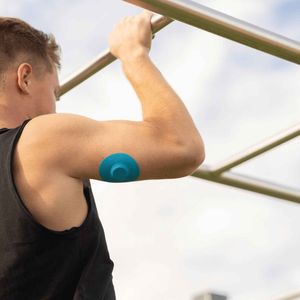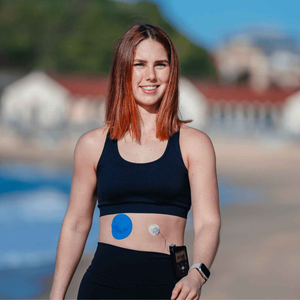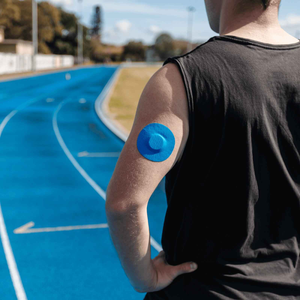Taking their "man’s best friend" status to the next level, certain breeds of dogs are now some people's furry hero. Alert dogs are trained to detect hypo/hyperglycaemia amongst people with diabetes. In Australia, some organisations exist to raise and train dogs to become therapy dogs for people with down syndrome, PTSD, type 1 diabetes and more.
What can dogs help diabetes with?
When your blood sugar levels rise or drop into unsafe levels, your body produces chemicals and/or ketones that are detectable through your breath. Trained dogs can sniff out these changes in your body before you experience symptoms or even before your CGM can recognise changes in your blood sugar level. Upon smelling changes, the dog will alert you or your guardian in different ways. When trained by organisations, these dogs typically know multiple ways to alert the person or guardian; for example, they can hold a particular toy in their mouth, jump on the owner, bring medications to the owner, or even retrieve a mobile phone.
What breed of dogs can do this?
When choosing a dog to be a companion and alert dog, it's important to choose a breed with a calm temperament that gets on well with other breeds. Dogs like labradors, golden retrievers, poodles and whippets are considered amongst the most suitable breeds. The dog should start training to become an alert dog in their first three years of life - so if you already have a dog and are keen to give things a go, keep this in mind.
How do I get one or train one to do this?
Certain organisations, like Smart Pups, allows fostering of alert dogs. However, they don't just have to be trained by organisations - you can train one yourself if you have the knowledge and patience! When training these dogs, positive enforcement should always be chosen over negative; these dogs should be rewarded for positive behaviour and ignored when not doing the correct thing. You can read more about training your dog to detect your blood sugar level changes here.
It's not just detecting your blood sugar levels that dogs come in helpful for; a study published in the Diabetes Care journal showed that owners reported decreased anxiety about being hypo or hyperglycaemic in public, they had more ability to participate in physical activities and they had an overall improved quality of life.
If you were already thinking a furry friend might be a good addition to your home, why not go the extra length in finding or training an alert dog?





